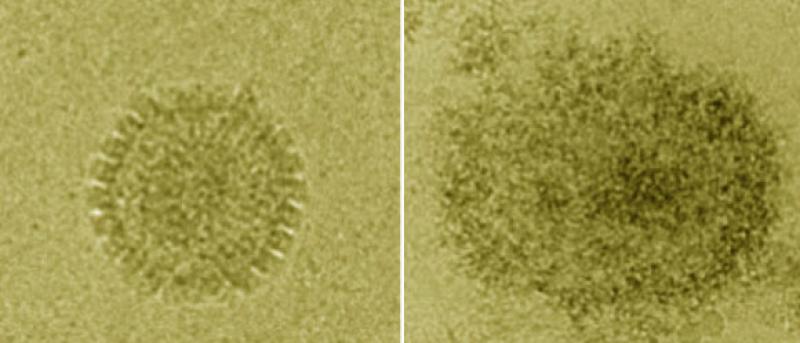Modified Sugars Show Broad-Spectrum Virucidal Activity
Category: Health, Science & Technology
Via: dignitatem-societatis • 5 years ago • 5 commentsBy: Enrico de Lazaro



A team of researchers from the University of Manchester, the University of Geneva, and the EPFL has synthesized new antiviral materials that proved to be active against a large number of viruses, including herpes simplex virus, respiratory syncytial virus, dengue virus, and Zika virus. Made from cyclodextrins , naturally occurring derivatives of glucose, the molecules exhibit a broad-spectrum virucidal, irreversible mechanism of action and present a high barrier to viral resistance.

Viruses can negatively affect society at several levels: from viral infections of food crops and livestock to the serious health impacts of viruses that infect humans, such as HIV, Ebola, and Zika virus.
New antivirals are needed, and nontoxic drugs that irreversibly inhibit viruses — virucidal — are postulated to be ideal.
Unfortunately, all virucidal substances described to date, such as bleach, are toxic.
“We successfully engineered new molecules, which are modified sugars that show broad-spectrum antiviral properties,” said Dr. Samuel Jones, a scientist at the University of Manchester and the Henry Royce Institute for Advanced Materials.
“The antiviral mechanism is virucidal meaning that viruses struggle to develop resistance.”
“As this is a new type of antiviral and one of the first to ever show broad-spectrum efficacy, it has potential to be a game changer in treating viral infections.”
Using cyclodextrins modified with mercaptoundecane sulfonic acids, Dr. Jones and colleagues showed that the outer shell of a virus can be disrupted, thereby destroying the infectious particles on contact, as oppose to simply restricting its growth.
The molecules attract viruses before breaking them down on contact, destroying the virus and fighting the infection.
“We developed powerful molecules able to work against very different viruses, therefore, we think this could be game changing also for emerging infections,” said Professor Caroline Tapparel, a researcher at the University of Geneva.
“With further testing the treatment could find a use in creams, ointments and nasal sprays or other similar treatments for viral infections,” the study authors said.
“This exciting new material can work to break down multiple viruses making for cost-effective new treatments even for resistant viruses.”
The team’s results were published in the journal Science Advances .
_____
Samuel T. Jones et al . 2020. Modified cyclodextrins as broad-spectrum antivirals. Science Advances 6 (5): eaax9318; doi: 10.1126/sciadv.aax9318



A safe and cost-effective way to fight viruses? This could be huge.
To me the biggest threat to life is life ... and in particular the microbiological life. I see the demise of our species most likely coming from microbiological sources rather than destruction by space debris, nuclear war, etc.
So multi-faceted mechanisms that can safely supplement our immune system are most welcome. Will we ever find mechanisms that can spot malformed cell growth and thus eradicate cancer in general?
I recently read an article about ultrasound therapy tuned to specific frequencies that was capable of destroying cancer cells discriminately, leaving healthy cells intact and undamaged.
I'm going to try to find it again and seed it.
The Israeli technology?
Caltech research, as far as I know.